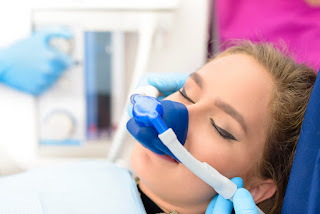How a Mouthguard Can Protect Your Child's Teeth
Aside from football, most youth sports leagues do not require children to wear mouthguards. Unfortunately, almost every activity can turn physical, and kids often get hurt as a result. Fortunately, you can utilize protective equipment to keep your children safe and happy with their choice of sport. Here is how.
Why Your Children Need Them
Most parents choose to have their children play some type of sport. Depending on which they go with, their children might be at risk of impact to the head. While this outcome should not scare you away from enrolling your kids in activities, you should do everything you can to keep them as safe as possible when at play. One of the best ways to do so is having them wear a mouthguard. The following are a few dangers that this piece of protective equipment can help defend against.
Concussions - This ailment is the most common form of traumatic brain injury. It has a variety of adverse outcomes including headaches, nausea, confusion, and much more. There is also strong evidence that having multiple concussions leads to an exponential increase in the likelihood of long-term effects.
Jaw Damage - Impact to the jaw can cause a variety of injuries, with the most extreme being a broken bone. What a mouthguard does is add some cushion to that blow and stabilize the area in the event of an impact.
Tooth Damage - Lastly, we have tooth damage. Anything from a flying ball to an opposing team member’s elbow can dislodge a tooth. This event occurring will likely lead to a trip to the dentist and an expensive procedure. Of course, you’ll be the one picking up the bill.
Types of Mouthguards
The three basic types of mouthguards are as follows.
Custom - For this type, you’ll have to go to a dentist or dental lab to get a mold of your children’s teeth done. Then, that medical provider will make a mouthguard that fits perfectly.
Boil - This option is the best of both worlds, as it is cheap but allows for a level of customization. If you don’t want to pay for a custom guard, you may choose to go with a boiled one.
Stock - These guards seek to be usable right away. While they are better than nothing, your children will generally be safer with a more customized fit.
How to Take Care of a Mouthguard
If you’re not careful, your child’s mouthguard can become a breeding ground for bacteria. The two methods you can use to avoid this trap are proper cleaning and storage. First, brush the mouthguard with toothpaste after every use and let it air dry. Next, store it in a ventilated container until next time.Choosing to have your child wear a mouthguard will not only protect their health, but will also save some money by not having to pay medical bills. Though unlikely, a kid with a mouthguard in can still experience dental damage. If this ever happens to your family, be sure to see a St. Louis pediatric dentist as soon as possible.
The Dental Anesthesia Center: Sedation and Sleep Dentistry
950 Francis Pl #305
Clayton, MO
63105
(314) 862-7844




I just couldn't leave your website before telling you that I truly enjoyed the top quality info you present to your visitors? Will be back again frequently to check up on new posts. mouthguard for kids
ReplyDelete